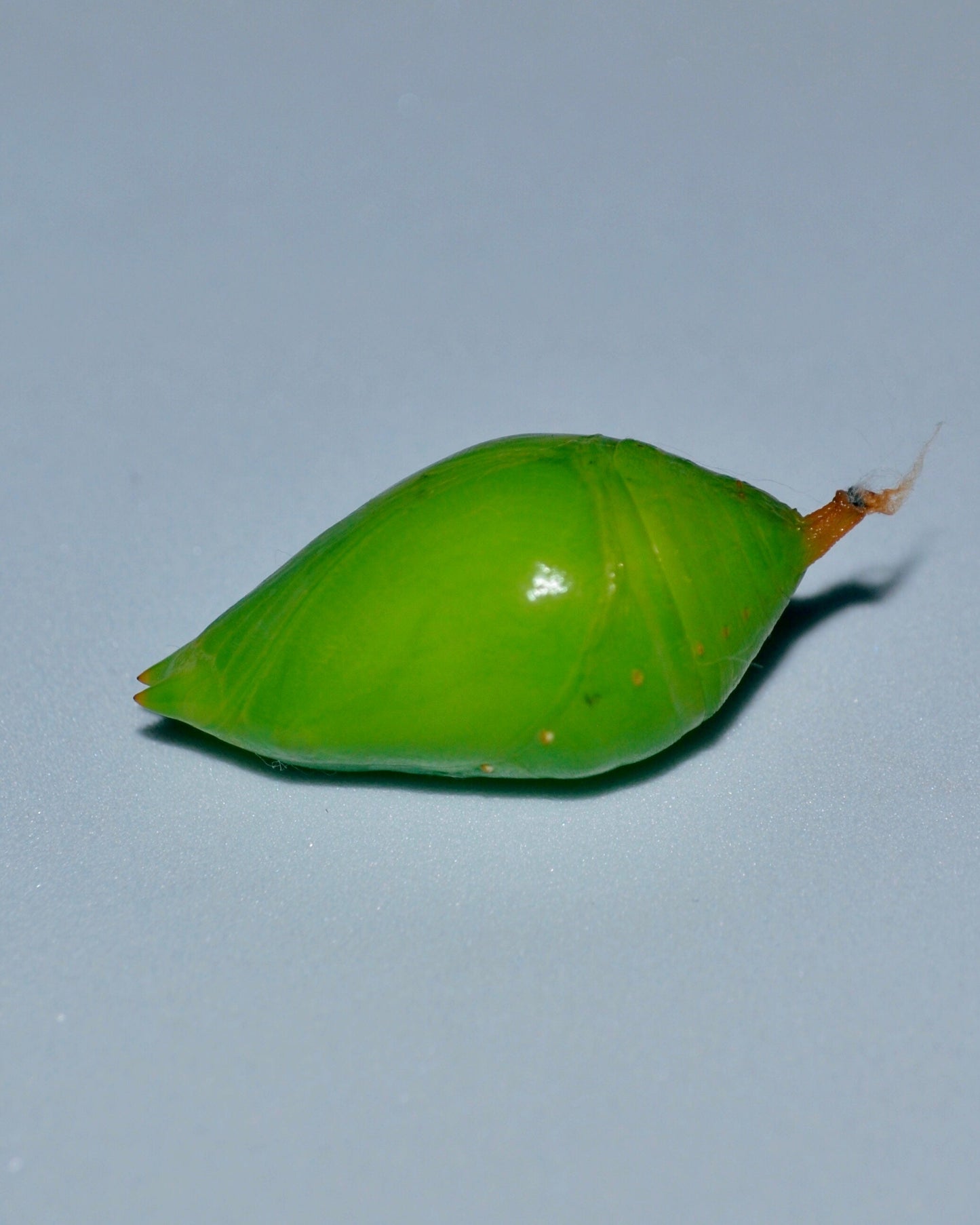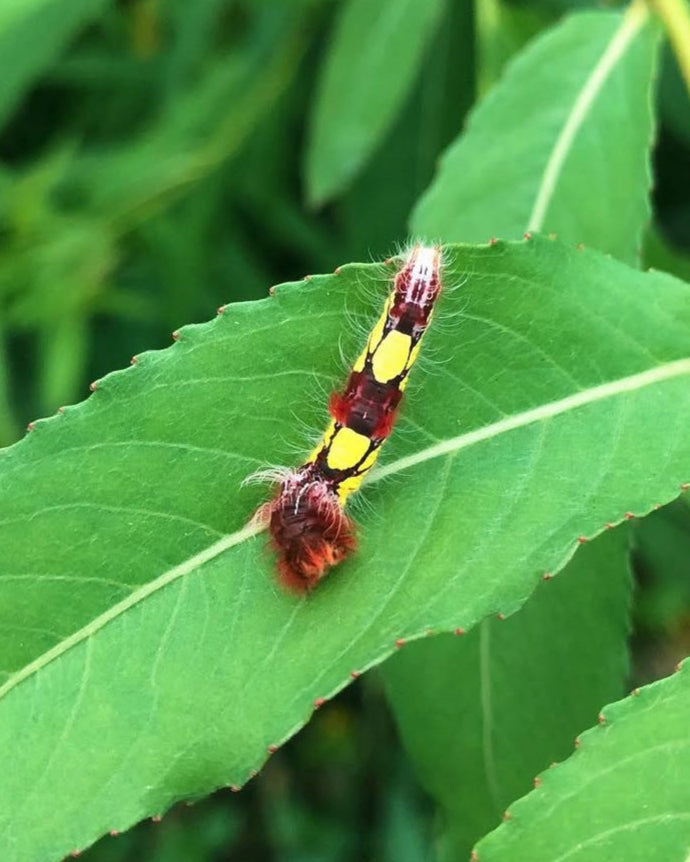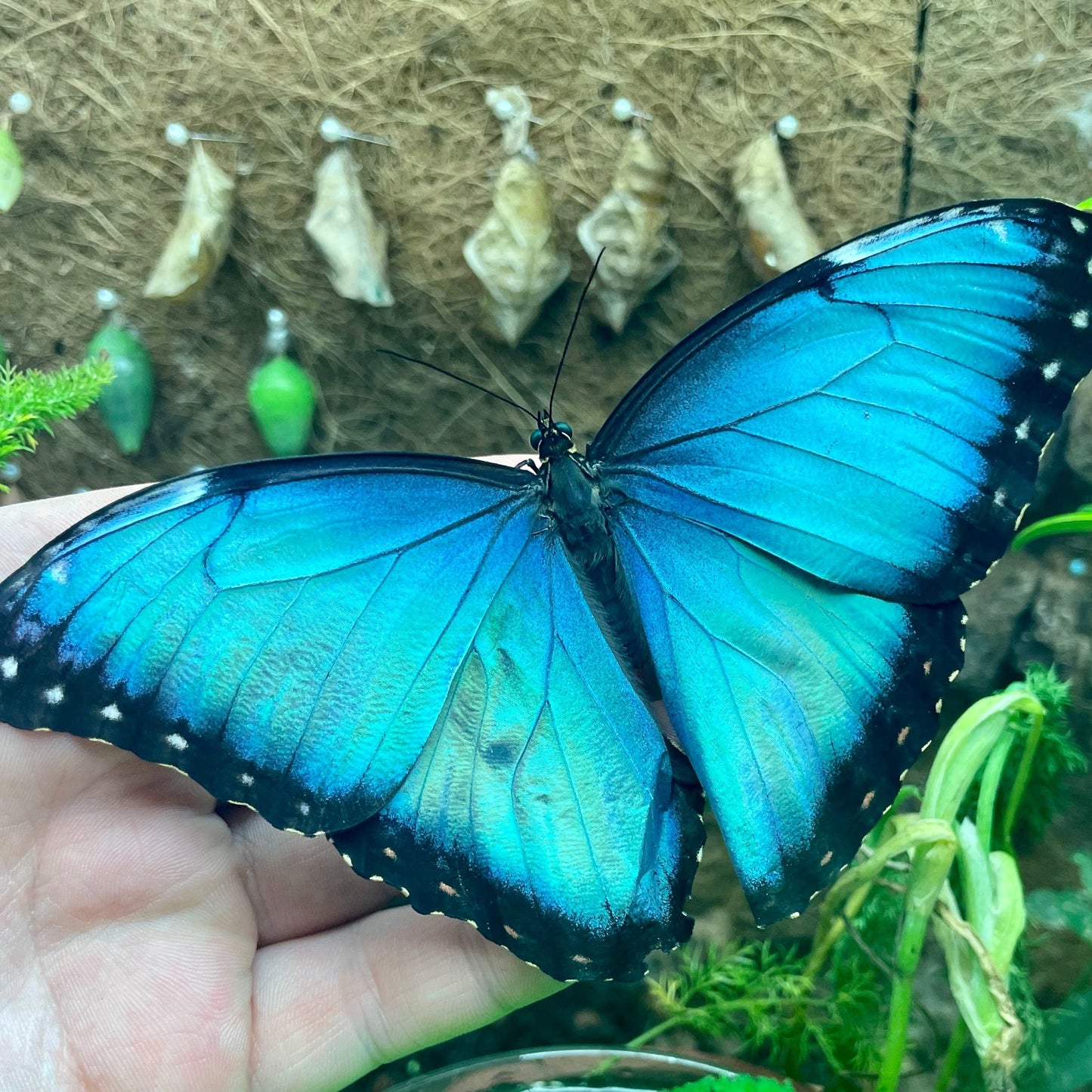Bugs & Butterflies UK
Blue Morpho Butterfly PUPAE (Morpho helenor)
Blue Morpho Butterfly PUPAE (Morpho helenor)
Couldn't load pickup availability
Morpho helenor is a species of butterfly in the family Nymphalidae, widely distributed throughout Central and South America. It is known for its large size, striking iridescent blue wings, and ecological significance in tropical rainforests. It has multiple subspecies across its large range, each with slightly different patterning and colouration. Our stock comes from various farms in Central and South America, so you may receive any of the subspecies helenor, peleides, rugitaeniatus, or montezuma. Eggs are supplied from the butterfly house where these subspecies often interbreed, producing particularly colourful adults!
The upper side of the wings in Morpho helenor is a vibrant metallic blue, resulting from microscopic scales that reflect and refract light. This dazzling display helps the butterfly evade predators through visual confusion. In contrast, the underside of the wings is brown with eye-like patterns that serve as camouflage and a defense mechanism against predators when the butterfly is resting.
Morpho helenor inhabits forested areas, including both primary and secondary rainforests. Adults are most often seen flying in dappled sunlight along streams or forest trails. They feed primarily on fermenting fruit juices, rotting organic matter, and tree sap. The caterpillars are reddish-brown with greenish-yellow patterns and feed on a variety of host plants, mainly legumes.
This species undergoes complete metamorphosis, transitioning through egg, larva, pupa, and adult stages. Morpho helenor plays a vital ecological role as both a pollinator and a food source for predators. Its beauty and ecological importance make it a symbol of tropical biodiversity and a key attraction in butterfly houses and conservation programs.
Host plants: the leaves of Legumes, e.g. Wisteria, Pea, Beans, Mucuna, Erythrina, Peanut
Difficulty: Easy (1/10) to care for in all stages!
Temperature: Room temp or warmer; butterflies enjoy sunshine
Lifecycle: Continually brooded
Share































































